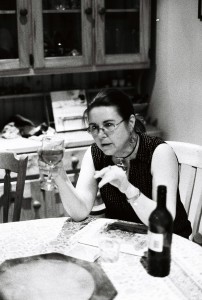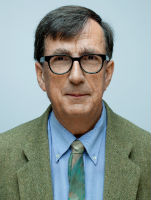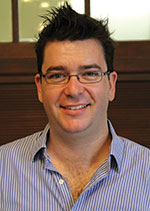The World Religions Paradigm
There can't be many listeners who haven't come into contact with the "World Religions" paradigm, either through the podcast or in their own undergraduate studies. The idea that we can classify religious traditions into a hierarchical schema goes back to the earliest days of anthropology and sociology. Although, C. P. Tiele defined "World Religions" as those which had spread outside of their original cultural context, today the term is taken to mean the "Big Five" — Christianity, Islam, Judaism, Buddhism and Hinduism. Frequently this is complimented by Indigenous Religions and New Religious Movements. Yet despite the fact that this approach originated in the Victorian era under the influence of colonialism, it is still the dominant framework in pedagogical approaches to the study of religions.
Yet this categorisation assumes a number of problematic criteria. Most obviously, it favours "traditions", and especially those which have straddled more than one ethnicity. Secondly, there's an implicit weighting towards religions with books, temples, founders and other things which can be easily quantised - and perhaps not coincidentally, like Christianity. Lastly, and perhaps most importantly, it assumes that "religion" is a thing which can be recognised and catalogued, and not a term which is mostly concerned with the exercise of power, as scholars such as Chidester, Asad and McCutcheon have argued. Is the World Religions paradigm, then, as Max Müller argued, simply how "the vast domain of religion must be parcelled out"? Or, as Terry Thomas put it, is it less a case of "know thy enemy" as "know thy trading partner"? To discuss this important issue, we were delighted to invite back Professor James Cox.
After the World Religions Paradigm…?
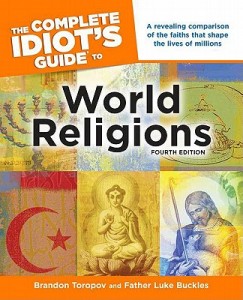 In this week's podcast, We discussed some of the problems with the World Religions paradigm, most notably its colonial heritage and Christocentrism. Given its dominance in the public perception of "Religion", however, can we as teachers get away from it? Is there a pedagogical approach which focusses on issues of power and domination, and challenges, rather than reinforces, outmoded common-sense categorisations? In other words, can "Religion 101" ever be more than a survey of "the World''s Faiths", and if so, what do we replace it with?
In this week's podcast, We discussed some of the problems with the World Religions paradigm, most notably its colonial heritage and Christocentrism. Given its dominance in the public perception of "Religion", however, can we as teachers get away from it? Is there a pedagogical approach which focusses on issues of power and domination, and challenges, rather than reinforces, outmoded common-sense categorisations? In other words, can "Religion 101" ever be more than a survey of "the World''s Faiths", and if so, what do we replace it with?
We begin with James Cox, who adds a postscript to his previous interview, suggesting some possibilities for pedagogical approaches to Religious Studies without falling back into the problematic World Religions paradigm. Mark Jurgensmeyer, Peter Beyer and Craig Martin then outline approaches they have utilised in the US - critical, sociological.... - and reflect on their success. Suzanne Owen, however, points out some of the serious practical issues of teaching based on alternative and indigenous religions. We close with Steve Sutcliffe who, while accepting some challenging issues in the UK situation, nevertheless expresses a need for the field as a whole to work together to move Religious Studies pedagogy forward.
Faith Development Theory
Within the field of psychology, extensive research has explored a variety of themes related to development theory from humanism to cognitive. Much of research focuses on graduated stages which indicate a change in complexity both in behavioral as well as cognitive growth. Other theories of development have even focused on ethical development as related to the individual and their community. James Fowler’s Stages of Faith is an excellent example of the convergence of a variety of developmental theories and models into a single theoretical paradigm of faith. Fowler believed that individuals change and grow in their faith much like they develop in learning or behavior. He suggested six stages of development which can be applied to people. The earlier stages are related to learning and relationship with one’s inner community while the later stages speak to the issues of ethics and social awareness. Fowler's work has been celebrated by theologians, religious educators, and professionals as a milestone in the study of faith and religion. Fowler's work also serves as a template upon which to structure the education of youth and the tailoring of ministry programs in the identification of their faith development.
For all accounts, many see Fowler's work as a classic text, however, it is not without controversy. Within some circles of psychology of religion and religious studies, Faith Development has been all but abandoned. The work utilizing Fowler's stages appears mainly in theological empiricism or pastoral care. There are some exceptions however. Enter Heinz Streib of Bielefeld University. Over ten years ago, Streib saw applicability to Fowler's stages, but not in their typical empirical application. Heinz realized that Fowler's descriptions had descriptive utility in how individuals structure and formalize their belief, but he also recognized that the graduated method of “stages” was empirically and culturally problematic. Particularly, some individuals seek a defined and close knit group identity within their religious tradition and would likely not be concerned with the social justice for others of different faiths. Moreover, from a cognitive perspective, such individuals are also just as happy with simplistic forms of meaning and an authoritarian theological tradition. For Streib, these systems of meaning were not passé or scant in any way, only different. Streib proposed “styles of faith” based in Fowler, but with the fluidity for individuals or progress and digress, faith becomes a much more dynamic process. This podcast explores Dr. Streib’s work on Faith Development, Faith Styles, and his current research in the field of Psychology of Religion.
Religious Experience
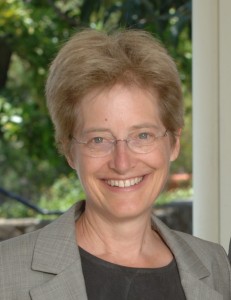 In this wide-ranging interview (our 50th!), Ann Taves and David Wilson discuss the concept of religious experience. Taves challenges traditional models of religious experience, rejecting both an essentialist approach with a sui generis category and a constructivist approach which accepts only discourses. Instead, she argues that not only can we examine unusual experiences in themselves, as they affect individual agents. From there, we can examine how these experiences become reified and institutionalised by specific traditions, as well as providing impetus for new religious movements. Taves' work utilises historical and ethnographic methods in an attempt to establish an approach which might allow cross-cultural and diachronic analysis of unusual experiences without recourse to specific theologies.
In this wide-ranging interview (our 50th!), Ann Taves and David Wilson discuss the concept of religious experience. Taves challenges traditional models of religious experience, rejecting both an essentialist approach with a sui generis category and a constructivist approach which accepts only discourses. Instead, she argues that not only can we examine unusual experiences in themselves, as they affect individual agents. From there, we can examine how these experiences become reified and institutionalised by specific traditions, as well as providing impetus for new religious movements. Taves' work utilises historical and ethnographic methods in an attempt to establish an approach which might allow cross-cultural and diachronic analysis of unusual experiences without recourse to specific theologies.
You can also download this interview, and subscribe to receive our weekly podcast, on iTunes. And if you enjoyed it, please take a moment to rate us, or use our Amazon.co.uk link to support us when buying your important books etc.
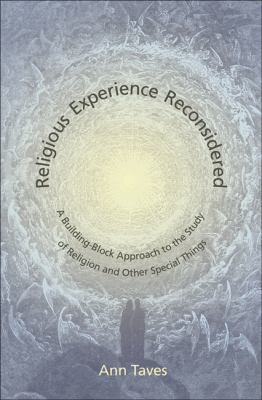 Ann Taves is Professor of Religious Studies and holder of the Virgil Cordano OFM Chair in Catholic Studies at the University of California at Santa Barbara, a position she has held since 2005. Previously she taught at Claremont School of Theology and Claremont Graduate School. Her major publications include Religious Experience Reconsidered: A Building Block Approach to the Study of Religion and Other Special Things (Princeton University Press, 2009), which received the 2010 Distinguished Book Award from the Society for the Scientific Study of Religion, and Fits, Trances and Visions: Experiencing Religion and Explaining Experience from Wesley to James (Princeton, 1999), which received the Outstanding Professional and Scholarly Book Award in Philosophy and Religion from the Association of American Publishers in 2000.
Ann Taves is Professor of Religious Studies and holder of the Virgil Cordano OFM Chair in Catholic Studies at the University of California at Santa Barbara, a position she has held since 2005. Previously she taught at Claremont School of Theology and Claremont Graduate School. Her major publications include Religious Experience Reconsidered: A Building Block Approach to the Study of Religion and Other Special Things (Princeton University Press, 2009), which received the 2010 Distinguished Book Award from the Society for the Scientific Study of Religion, and Fits, Trances and Visions: Experiencing Religion and Explaining Experience from Wesley to James (Princeton, 1999), which received the Outstanding Professional and Scholarly Book Award in Philosophy and Religion from the Association of American Publishers in 2000.
Mandy Robbins on Personality Types
As one of the earliest forms of Personality Assessment, the Myers Briggs Type Indicator or MBTI was first formally published in 1942 by Katharine Briggs and Isabel Myers. Inspired by the theoretical richness of Carl Jung, the MBTI explored and celebrated the differences of people regarding their behavior. The structure of the MBTI makes the assumption that behavior is innate in various forms and that people have dominate and – in some theories of personality – recessive behaviors which are automatic and inherent. Psychological Type theory has four sets of binary choices related to personality. Those are two orientation types defined as extraversion and introversion, two perceiving functions described as sensing and intuition, two judging functions defined as thinking and feeling and two attitudinal perspectives described as judging and perceiving. These four binary choices produce sixteen possible personality types.
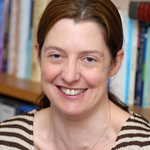 Research has explored a variety of perspectives regarding personality type particularly in exploration of the intersections and division of innate characteristics from socially conditioned characteristics. Even more, some research has shown that some recessive binary opposites emerge within adverse environmental conditions indicating a much more dynamic nature to Personality Type than originally thought in earlier academic literature. Personality Type Theory and Psychometrics has become a popular mainstay in a variety of academic and applied disciplines. Certainly one can find the MBTI in use in a variety of settings from medical to education. Psychology certainly has benefited from the application of Personality Type in a variety of ways. The field of Psychology of Religion is no exception. Certainly one can find continued focus and utility in the extensive works of scholars such as Leslie J. Francis at the University of Warwick in the U.K., Mandy Robbins at Glyndŵr University in Wrexham, UK as well as Christopher F. J. Ross at Wilfrid Laurier University and others who find depth and exploration in the recondite study of psychology of religion. This podcast features Christopher Silver speaking with Mandy Robbins.
Research has explored a variety of perspectives regarding personality type particularly in exploration of the intersections and division of innate characteristics from socially conditioned characteristics. Even more, some research has shown that some recessive binary opposites emerge within adverse environmental conditions indicating a much more dynamic nature to Personality Type than originally thought in earlier academic literature. Personality Type Theory and Psychometrics has become a popular mainstay in a variety of academic and applied disciplines. Certainly one can find the MBTI in use in a variety of settings from medical to education. Psychology certainly has benefited from the application of Personality Type in a variety of ways. The field of Psychology of Religion is no exception. Certainly one can find continued focus and utility in the extensive works of scholars such as Leslie J. Francis at the University of Warwick in the U.K., Mandy Robbins at Glyndŵr University in Wrexham, UK as well as Christopher F. J. Ross at Wilfrid Laurier University and others who find depth and exploration in the recondite study of psychology of religion. This podcast features Christopher Silver speaking with Mandy Robbins.
You can also download this interview, and subscribe to receive our weekly podcast, on iTunes. And if you enjoyed it, please take a moment to rate us, or use our Amazon.co.uk link to support us when buying your important books etc.
Certainly the field of Personality Type is not without detractors. As the field of psychometrics becomes increasing complex so too are the arguments against classic and traditional measures. Within some circles of psychology and psychology of religion in particular, personality type has met with recent scrutiny in comparison to other theories of personality such as the Big Five. Concerns over issues of statistical validity and measurable complexity come to mind. Many of those who fall within the Big Five camp regarding trait versus type theory find fault or concern with the binary structure of MBTI. Moreover, many of the detractors certainly have a valid argument as the data of the Myers Briggs Type Indicator functions much differently than more recent parametric measures such as the Big Five Domain. The Big Five domain has at the heart of its psychometric assumption the expectations of parametric normality meaning the data plots within a ubiquitous bell curve structure. For the MBTI especially in traditional forms of the assessment, certainly the data was either dichotomously based or in some forms percentage of agreement based (where analysis requires a nonparametric alternative such as Chi-Square). Based on these observations many psychometric theorist assumed the MBTI was not psychometrically valid as an assessment of personality. Certainly parametric attempts have been made to create alternative measures of personality. One of the fruitful products of Dr Francis’ work has been a measure of personality type which is scored and analyzed within parametric analysis. This research has reconfirmed the utility and usefulness of the Myers Briggs within not only within psychology but the field of psychology of religion as well.
While the debate is based in the operationalization of method and analysis in many respects, those who favor the Big Five certainly miss the richness of description related to each of the sixteen personality types. Moreover, the depth of Jungian theory is lost on a newer more statistically focused generation who seeks to quantitatively measure and account for human phenomena numerically as opposed to holistically. The work of Mandy Robbins and her colleagues still hold true to concerns with grand theory and the depth of human experience. This podcast explores the work of Mandy Robbins within the field of Psychology of Religion through the use of MBTI and similar measures. She explores the complexity of individuals and how their personality type can be descriptive of the types of people who call themselves religious and/or spiritual.
Mandy Robbins gained her first degree at the University of Wales, Lampeter in 1992 in Theology and Archaeology, her MPhil in Theology at Trinity College, Carmarthen in 1996, and her PhD in Theology at the University of Wales, Bangor in 2002. In 2005 she completed a post-graduate diploma with the Open University in Psychology. Mandy is also qualified as an MBTI practitioner. She worked as a junior research fellow at Trinity College, Carmarthen 1995-1999. From there she moved to the University of Wales, Bangor as teaching and research Fellow 1999-2007. In 2007 she moved to the University of Warwick as senior research fellow before moving in 2011 to Glyndŵr University as senior lecturer. She is managing editor of Rural Theology: International, ecumenical and interdisciplinary perspectives and also serves on the editorial boards of Welsh Journal of Psychology and Journal of Religious Education. Mandy’s research interests are within the field of the psychology of religion and include the beliefs and values of young people in England, Wales and Northern Ireland, personality theory and clergywomen in the Church of England. Mandy’s research employs mainly quantitative methods.
Recent publications
Robbins, M. (2008). Clergywomen in the Church of England: A Psychological Study. Edwin Mellen: New York, ppi-237, ISBN 978 0 7734 4948 5.
Francis, L. J., Robbins,M., & Astley, J. (Eds.) (2009). Empirical Theology in Texts and Tables: Qualitative, Quantitative and Comparative Perspectives (Empirical Studies in Theology). Leiden: Brill. ISSN 1389 1189 ISBN 978 9004 16888 6
Robbins, M., Francis, L.J., Ryland, A. (2011). Do introverts appreciate the same things as extraverts within a ministry team? A study among leaders within the Newfrontiers network of churches in the United Kingdom. Research in the Social Scientific Study of Religion, 22, 306-314.
Academic Publishing Roundtable
 Publish, or be damned! But the world of publishing can be esoteric, especially the cloistered world of academic publishing. In this special roundtable discussion, recorded during the Australian Association for the Study of Religion annual conference last year, Zoe Alderton leads a group of academics with experience of all levels of academic publishing in a discussion which aims to demystify the process.
Publish, or be damned! But the world of publishing can be esoteric, especially the cloistered world of academic publishing. In this special roundtable discussion, recorded during the Australian Association for the Study of Religion annual conference last year, Zoe Alderton leads a group of academics with experience of all levels of academic publishing in a discussion which aims to demystify the process.
George, Zoe and Carole begin by talking about editing special themed Issues of academic journals. They talk about networking - that you have to make yourself available, but you have to put the work in when it's needed. Alex then describes how a larger edited book is constructed from the proposals received. Simon then describes his experience of writing for an edited volume. Alex shares a cautionary tale about authorship and competition, and Carole recounts some less-than-positive experiences with editors.
Conversation then turns to the experience of being an editor yourself. George reads an email which he composed in order to reject someone as kindly as he could. Carole's closing advice is "Write what you want, and write clear." This podcast is essential information not only for prospective Religious Studies scholars, not only the humanities and social scientists, but anyone aiming for a career in academia.
Thanks to Zoe for chairing this, to Carole and Don for opening their home, and to Annabel Carr for providing photographs. And thanks to all the participants for an informative and entertaining recording.
You can also download this interview, and subscribe to receive our weekly podcast, on iTunes. And if you enjoyed it, please take a moment to rate us, or use our Amazon.co.uk link to support us when buying your important books etc.
 Zoe Alderton is a PhD candidate in the department of Studies in Religion at the University of Sydney. Her thesis concerns the New Zealand artist Colin McCahon and the nature of his audience reception. Zoe’s main interests are religion in modern art and religious communication via new media. Her recent publications include a discussion of the inheritance of Theosophy in Australian modernism, and an exploration of the contentious politics surrounding the Blake Prize for Religious Art. Upcoming publications concern imaginative pilgrimage in the work of Colin McCahon, and a discussion of the motifs in his beachside theology. Zoe is also a tutor in Sociology for the University of Western Sydney and reviews editor for the journal Literature & Aesthetics.
Zoe Alderton is a PhD candidate in the department of Studies in Religion at the University of Sydney. Her thesis concerns the New Zealand artist Colin McCahon and the nature of his audience reception. Zoe’s main interests are religion in modern art and religious communication via new media. Her recent publications include a discussion of the inheritance of Theosophy in Australian modernism, and an exploration of the contentious politics surrounding the Blake Prize for Religious Art. Upcoming publications concern imaginative pilgrimage in the work of Colin McCahon, and a discussion of the motifs in his beachside theology. Zoe is also a tutor in Sociology for the University of Western Sydney and reviews editor for the journal Literature & Aesthetics.
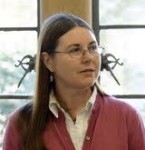 Carole M. Cusack (Professor in Studies in Religion at the University of Sydney) trained as a medievalist and her doctorate was published as Conversion Among the Germanic Peoples (Cassell, 1998). Since the late 1990s she has taught in contemporary religious trends, publishing on pilgrimage and tourism, modern Pagan religions, new religious movements, the interface between religion and politics, and religion and popular culture. She is the author of The Essence of Buddhism (Lansdowne, 2001), Invented Religions: Imagination, Fiction and Faith (Ashgate, 2010), and The Sacred Tree: Ancient and Medieval Manifestations (Cambridge Scholars Publishing), 2011. She has published in a number of edited volumes, and is the editor (with Christopher Hartney) of Religion and Retributive Logic: Essays in Honour of Garry W. Trompf (Brill, 2010). With Christopher Hartney (University of Sydney) she is editor of the Journal of Religious History (Wiley) and with Liselotte Frisk (Dalarna University) she is editor of the International Journal for the Study of New Religions (Equinox). She serves on the Editorial Boards of the journal Literature & Aesthetics, and of the Sophia Monograph Series (Springer).
Carole M. Cusack (Professor in Studies in Religion at the University of Sydney) trained as a medievalist and her doctorate was published as Conversion Among the Germanic Peoples (Cassell, 1998). Since the late 1990s she has taught in contemporary religious trends, publishing on pilgrimage and tourism, modern Pagan religions, new religious movements, the interface between religion and politics, and religion and popular culture. She is the author of The Essence of Buddhism (Lansdowne, 2001), Invented Religions: Imagination, Fiction and Faith (Ashgate, 2010), and The Sacred Tree: Ancient and Medieval Manifestations (Cambridge Scholars Publishing), 2011. She has published in a number of edited volumes, and is the editor (with Christopher Hartney) of Religion and Retributive Logic: Essays in Honour of Garry W. Trompf (Brill, 2010). With Christopher Hartney (University of Sydney) she is editor of the Journal of Religious History (Wiley) and with Liselotte Frisk (Dalarna University) she is editor of the International Journal for the Study of New Religions (Equinox). She serves on the Editorial Boards of the journal Literature & Aesthetics, and of the Sophia Monograph Series (Springer).
 Alex Norman ("the Tourism Guy") lectures at the Department of Studies in Religion at the University of Sydney, where he completed his doctorate in 2010. His central research interests revolve around the confluence of travel practices and religious practices. His book Spiritual Tourism (Continuum 2011) examines the intersection of travel and secular spiritual practice by contemporary Westerners. His other main research interest is in new religious movements, and in 2012 he co-edited the Handbook of New Religions and Cultural Production (Brill 2012) with Carole M. Cusack. From 2010 to 2013 Alex was co-editor of Literature & Aesthetics, culminating in a special issue examining travel and literature published in 2012. His latest research project looks at the various ways in which travel events and traditions have impacted the formation of new religious movements.
Alex Norman ("the Tourism Guy") lectures at the Department of Studies in Religion at the University of Sydney, where he completed his doctorate in 2010. His central research interests revolve around the confluence of travel practices and religious practices. His book Spiritual Tourism (Continuum 2011) examines the intersection of travel and secular spiritual practice by contemporary Westerners. His other main research interest is in new religious movements, and in 2012 he co-edited the Handbook of New Religions and Cultural Production (Brill 2012) with Carole M. Cusack. From 2010 to 2013 Alex was co-editor of Literature & Aesthetics, culminating in a special issue examining travel and literature published in 2012. His latest research project looks at the various ways in which travel events and traditions have impacted the formation of new religious movements.
 George Ioannides studied comparative religion as part of his Undergraduate degree at the University of Sydney, Australia.
George Ioannides studied comparative religion as part of his Undergraduate degree at the University of Sydney, Australia.
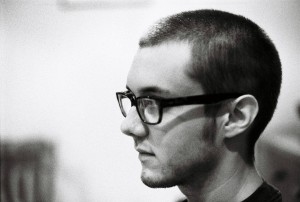 Simon Theobold is a graduate student in the Archaeology and Anthropology department of the Australian National University. His current research examines food taboos in contemporary Australia.
Simon Theobold is a graduate student in the Archaeology and Anthropology department of the Australian National University. His current research examines food taboos in contemporary Australia.
Sarah K. Balstrup is a PhD Candidate in the Department of Studies in Religion at the University of Sydney, and you can follow this link to read her paper Sentient Symbols: The Implications of Animal Cruelty Debates in Contemporary Australian Art.
Bruno Latour, Talking “Religiously”, part 1
Professor Bruno Latour is one of the most respected scholars in the social sciences today. This February, he came to Edinburgh University to deliver the annual Gifford Lecture Series, established in 1888 to 'promote and diffuse the study of Natural Theology in the widest sense of the term" - an opportunity we felt we could not miss. Previous presenters have included such luminaries as William James, Wilfred Cantwell Smith and E. B. Tylor. So how does an anthropologist of science come to be giving the Gifford Lectures?
In this first part, Latour and David Robertson discuss the broader relevance of his work for Religious Studies. They discuss actor-network theory, of which Latour was instrumental in developing. This includes some discussion of phenomenology and religious "essence". Discussion then moves to Latour's forthcoming work, Rejoicing: or the Torments of Religious Speech (Polity 2013), a more personal work which concerns not "religion" or "religions" but the adverb "religiously". What does it mean to talk religiously, and is it still even possible? It is at the same time a fierce attack on religions, but a passionate defence of religious speech.
You can also download this interview, and subscribe to receive our weekly podcast, on iTunes. And if you enjoyed it, please take a moment to rate us, or use our Amazon.co.uk link to support us when buying your important books etc.
Videos and abstracts of Bruno Latour's complete Gifford Lecture series can be viewed on the University of Edinburgh's page.
Bruno Latour is Professor at Sciences Po Paris and has also been Professor at the Centre de Sociologie de l'Innovation at the Ecole Nationale Supérieure des Mines in Paris and visiting Professor at University of California (San Diego), at the London School of Economics and Harvard University. After field studies in Africa and California he specialized in the analysis of scientists and engineers at work. In addition to work in philosophy, history, sociology and anthropology of science, he has collaborated on many studies in science policy and research management, producing significant works such as Laboratory Life: The Construction of Scientific Facts and most recently Reassembling the Social: An Introduction to Actor-Network-Theory (Clarendon Lectures in Management Studies). He has also made a valuable contribution to the political philosophy of the environment with the book Politics of Nature: How to Bring the Sciences into Democracy, a theme which the Gifford Lectures continue.
Bruno Latour, Talking “Religiously”, part 2
This is the second part of our interview with Professor Bruno Latour, and if you haven't already, you can listen to the first part here.
This time, Latour and David Robertson discuss Latour's recent works We Have Never Been Modern and On the Modern Cult of the Factish Gods. Discussion moves from his critique of the distinction between the manufactured and "real", and how this affects our models of belief.
Conversation finally turns to his Gifford Lecture Series, presented this February in Edinburgh, with the title Facing Gaia: An Enquiry Into Natural Religion. While we are used to problematising the category religion, Latour argues that we should equally question the category of natural. Videos and abstracts of Bruno Latour's complete Gifford Lecture series can be viewed on the University of Edinburgh's page.
You can also download this interview, and subscribe to receive our weekly podcast, on iTunes. And if you enjoyed it, please take a moment to rate us, or use our Amazon.co.uk link to support us when buying your important books etc.
Bruno Latour is Professor at Sciences Po Paris and has also been Professor at the Centre de Sociologie de l'Innovation at the Ecole Nationale Supérieure des Mines in Paris and visiting Professor at University of California (San Diego), at the London School of Economics and Harvard University. After field studies in Africa and California he specialized in the analysis of scientists and engineers at work. In addition to work in philosophy, history, sociology and anthropology of science, he has collaborated on many studies in science policy and research management, producing significant works such as Laboratory Life: The Construction of Scientific Facts and most recently Reassembling the Social: An Introduction to Actor-Network-Theory (Clarendon Lectures in Management Studies). He has also made a valuable contribution to the political philosophy of the environment with the book Politics of Nature: How to Bring the Sciences into Democracy, a theme which the Gifford Lectures continue.
Religion and the Media
 The study of religion in the media is an interdisciplinary field which has been of interest for scholars in media studies, religious studies and sociology among others. In this interview, Christopher Cotter and Teemu Taira discuss the relevance of study of religion in the media from the religious studies point of view as well as the media discourse on religion – the ways in which media covers religion, functions as defining what counts as religion and negotiates its social location. Dr Taira points out the possible contribution of religious studies, addresses some methodological questions in studying religion in the media, examines media’s approaches to religion, and finishes with a look at the potential futures of the area of study.
The study of religion in the media is an interdisciplinary field which has been of interest for scholars in media studies, religious studies and sociology among others. In this interview, Christopher Cotter and Teemu Taira discuss the relevance of study of religion in the media from the religious studies point of view as well as the media discourse on religion – the ways in which media covers religion, functions as defining what counts as religion and negotiates its social location. Dr Taira points out the possible contribution of religious studies, addresses some methodological questions in studying religion in the media, examines media’s approaches to religion, and finishes with a look at the potential futures of the area of study.
You can also download this interview, and subscribe to receive our weekly podcast, on iTunes. And if you enjoyed it, please take a moment to rate us, or use our Amazon.co.uk link to support us when buying your important books etc.
The interview refers to the project ‘Media Portrayals of Religion and the Secular Sacred: A Longitudinal Study of British Newspaper and Television Representations and Their Reception’ in which Taira worked at the University of Leeds between 2008 and 2010. It was part of the AHRC/ESRC ‘Religion and Society’ Programme, conducted by Kim Knott, Elizabeth Poole and Teemu Taira. The main output of the project is the forthcoming book Media Portrayals of Religion and the Secular (Ashgate), co-authored by Knott, Poole & Taira.
 Dr. Teemu Taira holds a research fellowship at the Academy of Finland at the department of Comparative Religion, University of Turku, Finland. He received his PhD in 2006 from the University of Turku and his recent research has focused on three areas: (1) religion and the secular in the British and Finnish media, (2) the new visibility of atheism, and (3) discursive study on ‘religion’. Taira’s current project examines discourse on religion and the secular in the Finnish media. For a selection of his English language publications relevant to this interview, see ‘further reading’ (below). For a full list of Taira’s publications in English and Finnish languages, see Studying Nonreligion within Religious Studies.
Dr. Teemu Taira holds a research fellowship at the Academy of Finland at the department of Comparative Religion, University of Turku, Finland. He received his PhD in 2006 from the University of Turku and his recent research has focused on three areas: (1) religion and the secular in the British and Finnish media, (2) the new visibility of atheism, and (3) discursive study on ‘religion’. Taira’s current project examines discourse on religion and the secular in the Finnish media. For a selection of his English language publications relevant to this interview, see ‘further reading’ (below). For a full list of Taira’s publications in English and Finnish languages, see Studying Nonreligion within Religious Studies.
Teemu has also prepared the following very helpful further reading list:
- Hjarvard, Stig & Lövheim, Mia (eds) 2012. Mediatization and Religion: Nordic perspectives. Gothenburg: Nordicom.
- Lynch, Gordon & Lövheim, Mia (eds) 2011. Special issue on the mediatization of religion. Culture and Religion 12(2).
- Mutanen, Annikka 2009. To Do, or Not Do God: Faith in British and Finnish journalism. Reuters Institute Fellowship Paper. http://reutersinstitute.politics.ox.ac.uk/fileadmin/documents/Publications/fellows__papers/2008-2009/Mutanen_-_To_do__or_not_do_God.pdf
- Poole, Elizabeth & Taira, Teemu 2013, forthcoming. Researching religion in British newspapers and television. Linda Woodhead (ed.), How to Research Religion: Handbook of methods in practice. Oxford: Oxford University Press.
- Stout, Daniel 2012. Media and Religion: Foundations of an emerging field. London: Routledge.
- Taira, Teemu 2010. Religion as a discursive technique: The politics of classifying Wicca. Journal of Contemporary Religion 25(3): 379–394.
- Taira, Teemu 2013. Making space for discursive study in Religious Studies. Religion 43(1): 1–20.
- Taira, Teemu 2013, forthcoming. Does the old media’s religion coverage matter in time of digital religion? Tore Ahlbäck (ed.), Digital Religion. Åbo: Donner Institute for Religious and Cultural History.
- Taira, Teemu; Poole, Elizabeth & Knott, Kim 2012. Religion in the British media today. Jolyon Mitchell & Owen Gower (eds), Religion and the News. Farnham: Ashgate, 31–43.
- Knott, Kim; Poole, Elizabeth & Taira, Teemu 2013, forthcoming. Christianity, secularism and religious diversity in the British media. David Herbert, Marie Gillespie & Anita Greenhill (eds), Social Media, Religion and Spirituality. Berlin: De Gruyter.
- Knott, Kim; Poole, Elizabeth & Taira, Teemu, forthcoming. Media Portrayals of Religion and the Secular. Farnham: Ashgate.
Alex Norman on Spiritual Tourism
What would you think if I told you I had just come back from a holiday in Aya Napa? How about Santiago de Compostella or Glastonbury? How about Mecca? When does travel become pilgrimage, and what are the spiritual factors behind our holiday choices? In this week's interview, Alex Norman and David Robertson discuss the history and modern relevance of journeys undertaken for spiritual benefit and transformation.
You can also download this interview, and subscribe to receive our weekly podcast, on iTunes. And if you enjoyed it, please take a moment to rate us, or use our Amazon.co.uk or Amazon.com link to support us when buying your important books etc.

Alex Norman lectures at the Department of Studies in Religion at the University of Sydney, where he completed his doctorate in 2010. His central research interests revolve around the confluence of travel practices and religious practices. His book Spiritual Tourism (Continuum 2011) examines the intersection of travel and secular spiritual practice by contemporary Westerners. His other main research interest is in new religious movements, and in 2012 he co-edited the Handbook of New Religions and Cultural Production (Brill 2012) with Carole M. Cusack. From 2010 to 2013 Alex was co-editor of Literature & Aesthetics, culminating in a special issue examining travel and literature published in 2012. His latest research project looks at the various ways in which travel events and traditions have impacted the formation of new religious movements.

